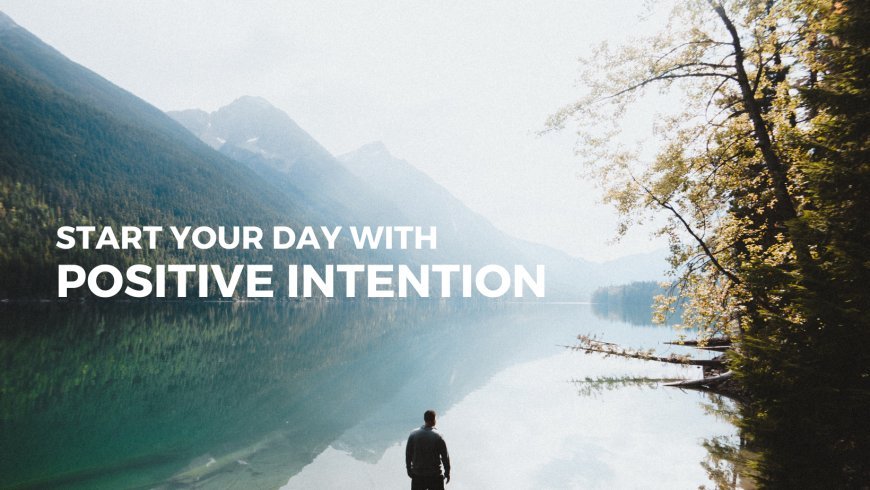Mental Health Matters: Daily 8 Habits for a Stress-Free Mind
Discover 8 proven daily practices to boost mental health, reduce stress, and build emotional resilience. Start your journey to a calmer, happier mind today.
In today's fast-paced world, mental health is just as important as physical health. While we often talk about eating well or staying fit, the well-being of our minds is frequently overlooked. With rising stress levels, anxiety, and burnout becoming common, it's time we prioritize mental health in our daily lives.
In this article, we’ll explore simple yet powerful daily practices that can help you maintain a calm, focused, and stress-free mind.
Why Mental Health Should Be a Daily Priority
Mental health affects how we think, feel, and act. It influences our decision-making, relationships, and how we handle stress. Just like brushing your teeth is part of a hygiene routine, nurturing your mental health should become a part of your everyday life.
Stress, if left unmanaged, can lead to:
-
Anxiety and depression
-
Sleep disturbances
-
Weakened immune function
-
Poor concentration and memory
However, the good news is that you can build resilience and reduce stress by practicing simple daily habits.
1. Start Your Day with Intention
Morning routines set the tone for the day.
Instead of reaching for your phone first thing in the morning, spend 10 minutes grounding yourself with intention. You can:
-
Practice gratitude by listing 3 things you're thankful for
-
Set a positive affirmation, like “I am in control of my thoughts.”
-
Do deep breathing or light stretching
This small shift can reduce anxiety and help you approach your day with a calm mindset.

2. Practice Mindfulness or Meditation
Mindfulness means being fully present in the moment without judgment. Studies show that just 10–15 minutes of mindfulness meditation each day can significantly reduce stress and improve emotional regulation.
Try:
-
Breathing meditation: Focus on your breath. Inhale deeply, exhale slowly.
-
Body scan meditation: Bring awareness to each part of your body.
-
Mindful walking: Walk slowly, noticing each step, sound, and sensation.
Apps like Headspace, Calm, or Insight Timer are great for beginners.

3. Eat Nourishing Foods for Your Brain
The food you eat affects your brain function and mood. A balanced diet can enhance energy, focus, and emotional well-being.
Here are some mood-boosting foods:
-
Leafy greens (spinach, kale): Rich in folate and magnesium
-
Berries: Packed with antioxidants
-
Fatty fish (salmon, sardines): High in omega-3s
-
Nuts and seeds: Good sources of healthy fats and zinc
-
Dark chocolate: Boosts serotonin
Avoid excessive caffeine, sugar, and processed foods—they can spike anxiety levels.

4. Take Digital Detox Breaks
Constant notifications, social media comparisons, and screen time overwhelm your mind. Give your brain some breathing space by taking “digital detox breaks.”
Try:
-
Keeping your phone on silent during meals
-
Avoiding screens 1 hour before bed
-
Setting boundaries with social media time
-
Designating one “no phone” hour each day
Unplugging helps reduce stress, improves focus, and enhance sleep quality.

5. Move Your Body Daily
Exercise isn't just good for your body—it’s a natural stress reliever.
When you move, your brain releases endorphins (feel-good chemicals), reducing anxiety and depression. You don’t need to hit the gym every day.
Simple ways to stay active:
-
Take a brisk 20-minute walk
-
Do yoga or dance to music
-
Try quick home workouts
-
Stretch between work breaks
Even 15–30 minutes a day can make a big difference in your mental clarity.

6. Keep a Journal
Writing your thoughts helps process emotions and clear your mind. Journaling is a great tool for:
-
Stress release
-
Self-reflection
-
Tracking mood patterns
-
Setting goals
Prompts to get started:
-
“Today I felt… because…”
-
“One thing I’m proud of today is…”
-
“What’s one worry I can let go of?”
Even writing for 5 minutes a day can ease mental clutter.

7. Connect with Loved Ones
Social connection is one of the strongest protectors of mental health. Talking to someone you trust can help you feel seen, heard, and supported.
Make time to:
-
Call or meet a friend
-
Join a hobby group or club
-
Express how you feel—don’t bottle it up
If needed, don’t hesitate to talk to a therapist or counselor. Seeking help is a strength, not a weakness.

8. Prioritize Quality Sleep
Lack of sleep increases stress hormones and affects memory, mood, and decision-making.
Tips for better sleep:
-
Stick to a regular sleep schedule
-
Avoid caffeine after 2 PM
-
Create a relaxing bedtime routine (warm bath, herbal tea, reading)
-
Keep your room cool and dark
Aim for 7–9 hours of sleep to allow your brain to reset and recharge.

Final Thoughts: Your Mind Deserves Daily Care
Just like you care for your skin, body, or home, your mind also needs daily attention and kindness. You don’t need a major lifestyle overhaul—small, consistent actions can bring long-lasting peace and emotional stability.
Remember:
“You can't pour from an empty cup. Take care of yourself first.”
By practicing even a few of these habits each day, you'll not only reduce stress but also build a stronger, happier, and healthier mind.
| Practice | Purpose |
|---|---|
| Morning gratitude or intention | Calm start to the day |
| Meditation or mindfulness | Reduces anxiety |
| Nutritious diet | Boosts mood and brain function |
| Digital detox | Lowers overwhelm |
| Daily movement | Releases feel-good hormones |
| Journaling | Emotional clarity |
| Social connection | Builds support |
| Quality sleep | Restores mental energy |
THANK YOU
What's Your Reaction?








